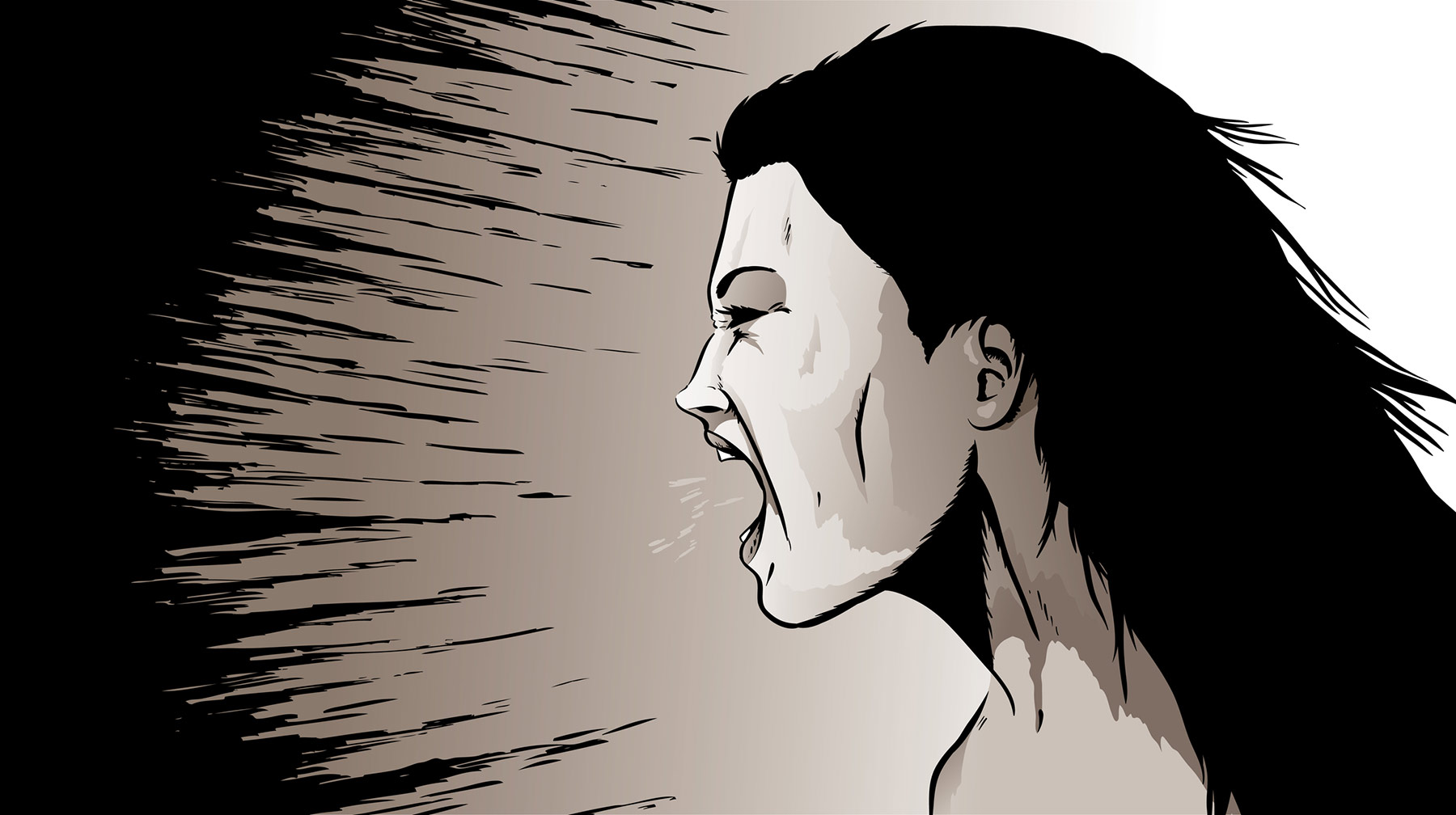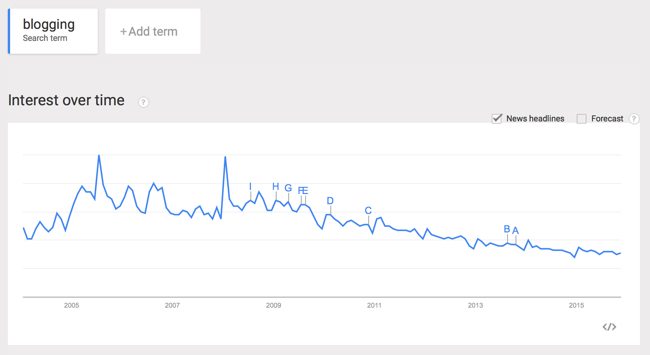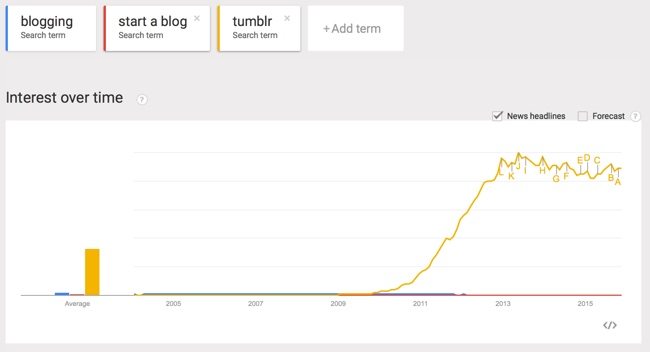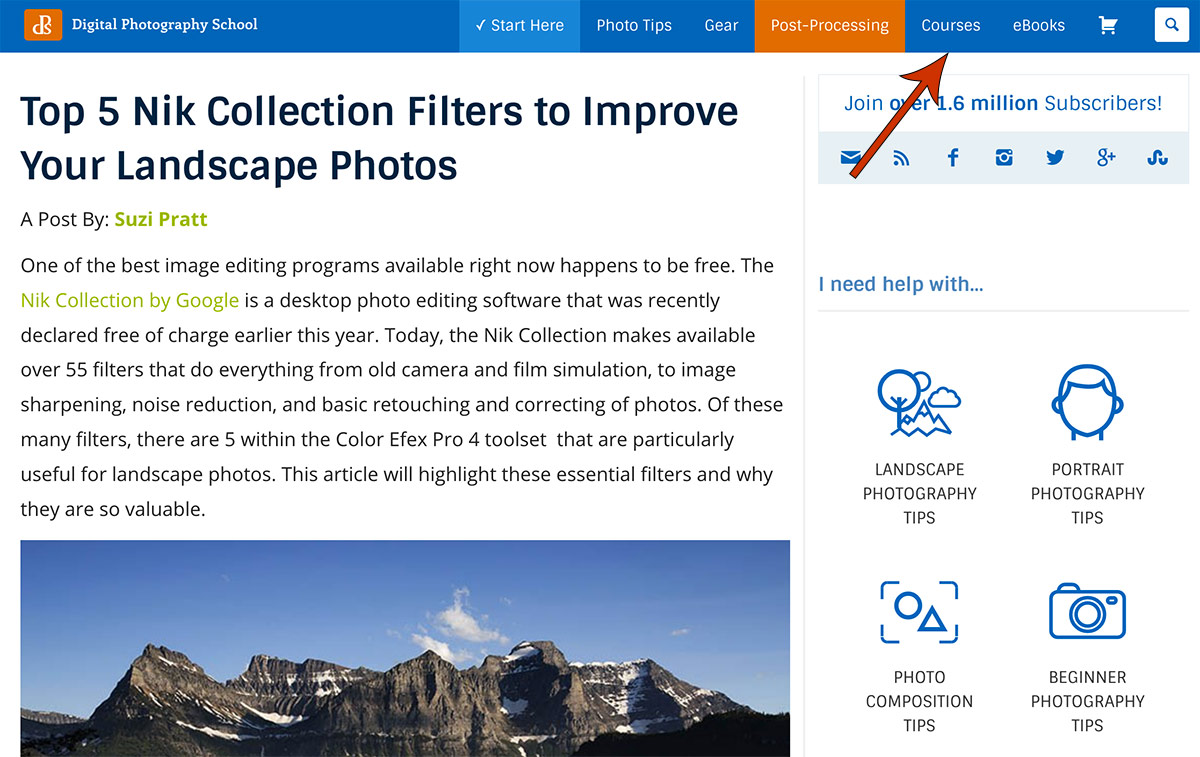
Blogging is just so 2005. Why bother…?
Every now and then someone stumbles upon Blog Tyrant and leaves some feedback a little bit like that. What is perhaps interesting is that I don’t entirely disagree with them.
And that got me really thinking about what blogging is and whether or not it has passed it’s use-by date as a concept in the age of video, podcasting and perhaps even virtual reality.
Don’t worry, this is not another Blogging is Dead post but rather a bit of an examination of what blogging should do in today’s modern world, and how we should think about our industry.
Let’s take a look.
A little bit of blogging history
Something that we need to do at this point is take a little bit of a look back at the history of blog sites in general and, perhaps more importantly, the history of the term “blogging”.

This is because, somewhere along the line, blogging has become associated with teenage Tumblr blogs and that is generally why people seem to be offended by the concept.

A lot of the denigrating remarks I see about blogging are usually aimed at people who are regularly updating the general public about their day-to-day lives, what they’re eating (often on Instagram), wearing, etc. without adding anything particularly new or exciting.
In a way that is pretty accurate, the term “blog” originally came from the two words “web” and “log” and was really a kind of online journal space where people would write and post it for others as a new form of remembering, sharing and connecting with others, etc.
Eventually blogging changed to become something that encompassed all sorts of news sites, updates within existing websites, and so on, where the latest content was posted at the top of the designated page. This stood in contrast to a standard website where the content and structure was largely static.
What is a blog these days?
Blogging is evolving quickly.
In fact, if you look at statistics you will see that blogging is rising faster than ever before, largely due to countries like China and India where the Internet is really taking off, and the fact that almost everyone now has a smartphone or laptop and can connect to the Internet.
These days blogging has become quite sophisticated and those that make a full time living with it (either directly or indirectly) generally use it as a way to drive traffic. And it’s is usually one of many ways.
For example, if you look at any successful blogger you will notice that they usually have a business set up that is part written content, part video, maybe a podcast and a whole lot of graphics.
And that is a really important point: blogging should only be part of the picture if you want to drive traffic to a product, existing business, course, etc.
It’s good to let that point sink in – the blog is not the end result, it’s one of the methods you use to find customers.
Of course, not every blog is about money. And in that sense your “customer” might be someone who donates to your charity or takes up your cause as we can see in the case of some very important and presently relevant blogs like Wikileaks.
But this really goes back to the idea that a good blogging strategy should not just be about traffic for the sake of getting traffic to a blog. It should be about helping people and then having a product or an outcome that helps them further and that they will often pay for.

For example, if you have a look at a site like Digital Photography School you can see how well this concept can be put into action. Once just an ordinary photography blog, Darren has built it out to now includes courses, guides, eBooks, tutorials, forums and so much more. The blog’s content is still the main feature, but the site itself now does so much more.
I think all of this is also happening because readers now expect a lot more from blogs and content-based websites. There is just so much good content out there these days that you have to go to really exceptional levels to please readers, and often that means more than just short written updates.
For example, in this post on how to make your website carbon neutral we went to some pretty big lengths like creating this infographic:

That post also entailed researching carbon offset options for months, spending money to offset our own carbon (check the badge in the footer!), talking to many different organizations, obtaining certificates, and so on.
This type of deeper research and presentation is something that is now common to blogging as a whole and there is definitely a new standard of expectation.
What is a blog to you?
There are a lot of really experienced bloggers who read this stuff and I’d love to know your thoughts on the definition of blogging and how the medium and perception of the medium has changed over time. Has it affected the way you go about running your own blog? And where do you see it going in the future?
Please leave a comment below and let us know.
Top image: © Daniel Villeneuve